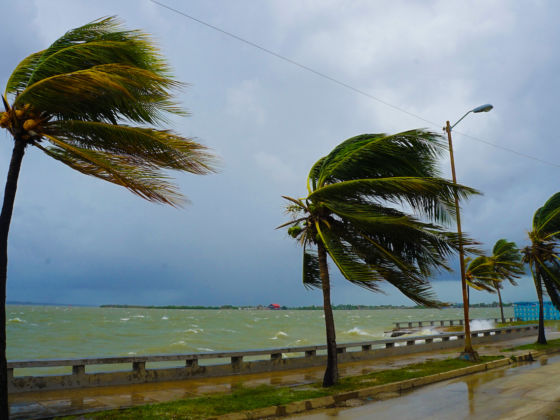IN AUGUST 2011, a bunch of my friends and I decided to have a beach weekend in the Outer Banks. We met up at my buddy’s place in Fayetteville, North Carolina, where we planned to spend a night before driving to the coast. But as we arrived, Hurricane Irene was approaching the southern coast. So, we sat in my buddy’s apartment for days, checking the weather every five minutes, calling our beach home’s owner, who clearly still wanted our money, but couldn’t give us the green light to come.
Our experience was relatively tame — instead of sitting on a beach, we just played marathon games of RISK, went to batting cages, watched movies, and drank beer — but traveling during a hurricane can be a nightmare. Flights are canceled by the hundreds, entire states are shut down, and travelers can be stranded for days.
So how to navigate travel in the middle of a storm?
